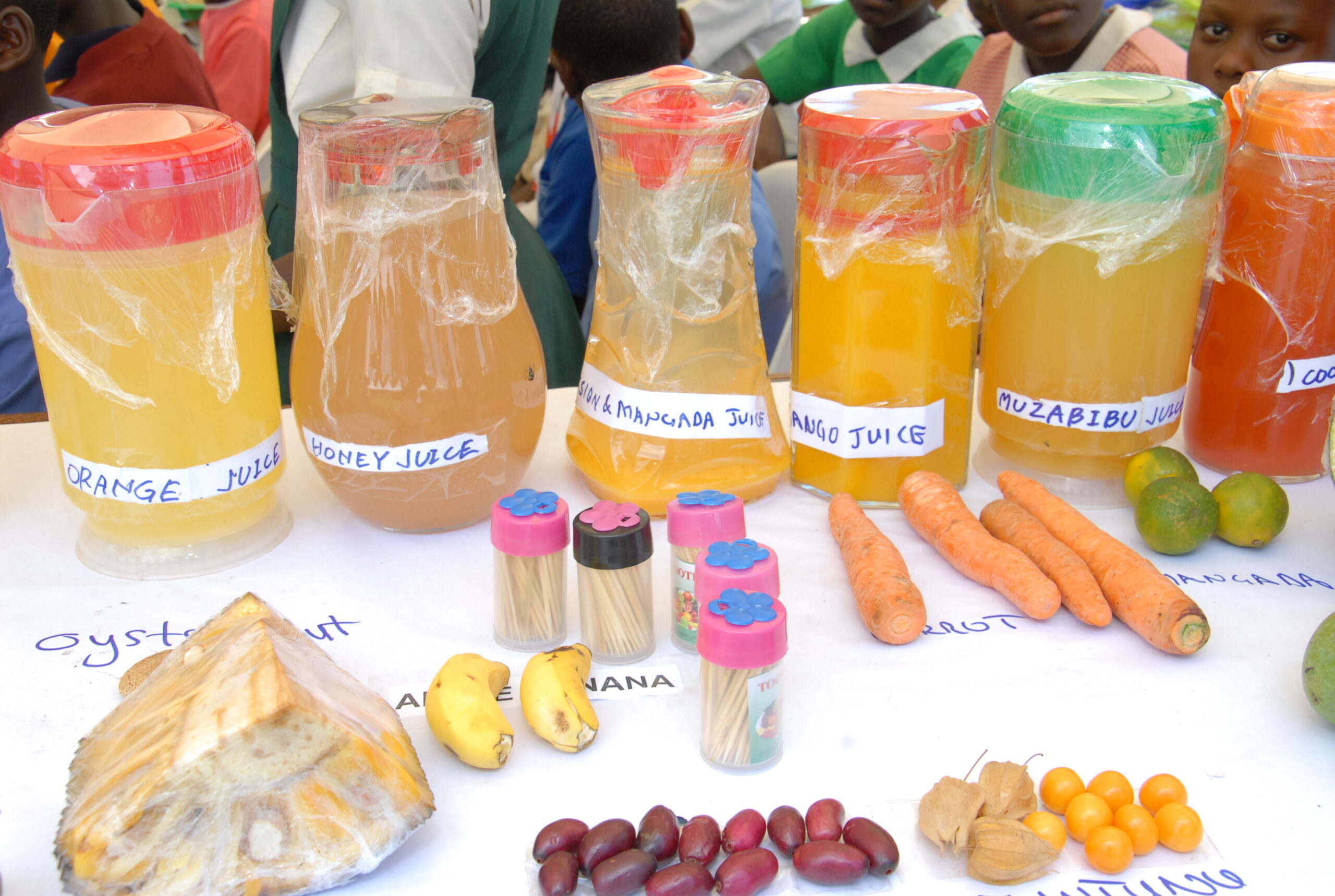Mathias Kigongo is the Chairperson of Buikwe District in Central Uganda. The political head of the district, Mr. Kigongo is also a practicing farmer. He is well aware of the challenges people in Buikwe face in diversifying what they grow and what they eat. Mr. Kigongo has been collaborating with Slow Food Uganda and Hivos under the Sustainable Diets for All programme to support the creation of Food Parliaments in Buikwe. Food Parliaments allow farmers, traders, vendors, cooks, hotel and restaurant owners as well as consumers to come together and talk about their food and diet related problems, and discuss changes to the local food system. Mr. Kigongo understands the importance of healthy diets and he is an ardent supporter of indigenous traditional foods.
What is a healthy diet for you?
I was born in a rural setting, near a lake. As a child, I worked on the farm with my family and my grandmother used to tell me how things were done. Back then, we had many different types of food on the table: we had fish, greens, millet, cassava, pumpkins, matooke. These have always been the staple foods of our Baganda tribe, here in Buikwe. They are also my favourite foods because they are local, nutritious and healthy. Today, I know many families don’t have enough to eat. People have changed their eating habits, replacing local foods with maize-based foods. I see them eating the same crop day and night: they have roasted maize accompanied by porridge. That makes them feel satisfied but it makes no sense nutritionally. That is not a balanced diet.

What prevents people from growing and eating healthier foods?
When we were young, people would not go hungry and they would keep part of their harvest for future planting seasons. That is no longer the case. Our government is trying to meet the demands of a growing population by boosting maize production for consumption and sale. It is thought that traditional indigenous foods alone cannot feed the people of Uganda. People have started abandoning the old lifestyle. As a result, farmers have stopped growing indigenous crops and vegetables and now local seeds are really hard to come about. Crops such as matooke, yams, and local sweet potatoes are . So, people’s diets are impoverished and we are seeing stunting in children. I don’t think the current system is sustainable. We need to re-engage people, go back to the old system and promote local diets, which go with our culture and heritage.
How can the Food Parliaments help fix the food system?
I meet the farmers and all the people to talk about the challenges we face and to listen to their views. The Food Parliaments allow people to come together to discuss problems relating to diets and food. But they have also come up with constructive ideas for how we could do things better. As a leader and government representative, I have tried to promote the central government’s agenda while also ensuring that we develop locally owned solutions. For example, if I have four acres of land, I can allocate one acre to growing local indigenous crops and the other three to growing commercial crops. We have identified farmers who are still growing indigenous crops and we are working with them to preserve and multiply the seeds for others to use.
What is your vision for the future?
Through our work with the Food Parliaments we have drafted new local laws, By-laws, to promote the cultivation and consumption of our indigenous crops. We are now looking to extend these laws with an Ordinance to apply to the whole district. The next steps are for the Council to approve these laws and then for the government to ratify them. We should go back to our history and look at what we used to have. My vision is to get more people to join me in improving the way we do things. In my role, I will reach out to people to popularise the new By-laws to make sure they are implemented, and I can bring technical people on board in order to support farmers to source seeds and inputs that will help them grow the crops.
This interview was taken from the transcripts of the video, ‘Food is Life’, produced by Hivos and IIED, in collaboration with BrandOutLoud, for the SD4All programme. Watch the video here https://vimeo.com/360218801/cdad0a06c7 to learn more about Mathias Kigongo’s story and the lives of other individuals championing healthy food in Uganda.




